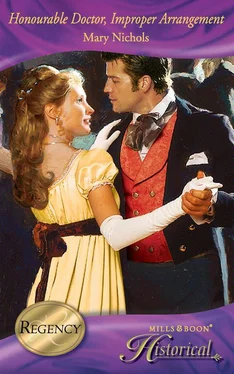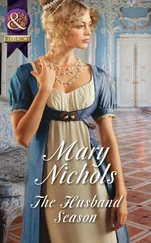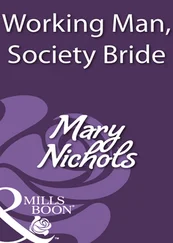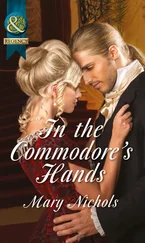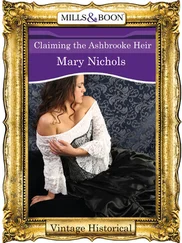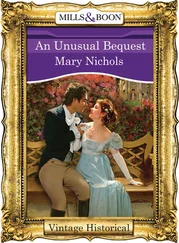‘He has settled down well. I am trying to find the family a more wholesome place to live, so that he can be returned to his mother.’ He noticed Kate slowly shaking her head and realised she had not told her grandmother the whole of what had happened the previous day and he must tread carefully.
‘How did you come to be involved in such work?’ her ladyship asked.
‘The plight of poor children has always interested me; since the war it seems harder for men to find work and there are so many poor, unwanted children about. I thought something should be done, so I approached as many influential and wealthy people as I could and one of those was Lady Eleanor. Between us we set up an association of like-minded people to raise funds and the result has been The Society for the Welfare of Destitute Children and a home for those we cannot foster out.’
‘And why did you choose to be a doctor?’ the old lady persisted in her questioning. ‘It seems a strange thing for a gentleman to do do.’
He laughed. ‘I was always picking up injured birds and animals when I was a boy and looking after them until they either died or were cured, then I would release them back into the wild. And when a choice of career was being considered, I decided on the army. But I would rather preserve life than end it, so I trained to be an army doctor…’
‘A far cry from looking after children,’ the old lady went on, as Susan returned with the tea things and, having set them out, left Kate to pour it and hand it out.
‘There are children with the women who follow the march,’ he told her. ‘Many were born in camp. I acted midwife on many an occasion, but my main occupation was treating the sick and wounded after the battles.’
Although Kate would not have dreamed of quizzing him as her grandmother was doing, she listened with growing admiration as he talked. If she had been a man, she would have pursued the same calling or something very like it, but such a career was not open to a woman and she had to content herself with visiting the poor and sick and taking them little comforts like food and clothing and helping them in any way she could.
‘I collect you were brought up by your uncle, is that not so?’ Lady Morland queried, changing tack suddenly.
‘Yes, my lady. Both my parents died when I was very young and he became my guardian.’
‘But you are not your uncle’s heir?’
‘I was not, but nine months ago my cousin died in a hunting accident, which has unexpectedly put me in that position.’
‘I see.’
Kate looked at him with renewed interest. She could feel for him; her own mother had died when she was seven and she knew the sense of loss never entirely went away. It might account for the bleak look she sometimes saw in his eyes.
Lady Morland was not done with him yet. ‘And do you do your work with your uncle’s blessing?’
He gave a wry smile. ‘Not exactly. He told me to go to the devil in my own way. Fortunately he is in prime kilter and I do not expect to inherit for a long time yet.’ It was a mild way of describing his relationship with his uncle, which had been, and still was, a stormy one, especially since the death of his cousin. He was expected to step into Charles’s shoes, marry an heiress and give him a brood of grandchildren. ‘You should be looking for a wife and setting up your own nursery, not taking on other people’s bantlings,’ Aunt Matilda told him repeatedly. ‘You will catch some dreadful disease, or be set upon and robbed by the very people you are trying to help…’ And that was mild compared with what his uncle said.
‘I assume from that you have not married.’
‘No, I have yet to meet the lady who will put up with my peccadilloes.’ It was his stock answer, if not entirely accurate.
‘I would not call the wish to help your fellow creatures a peccadillo, Dr Redfern,’ Kate put in. ‘It is an admirable thing to do.’
‘Thank you, ma’am.’ He paused and plunged on, unwilling to continue being quizzed on the subject of marriage. ‘If you are interested in the work of the Society, there is be a lecture at Somerset House on Friday evening at eight o’clock with the object of raising funds. If you are not otherwise engaged, would you care to attend?’
‘Yes, I think I would.’
As Kate spoke, her father came into the room. He was, Simon judged, about fifty, grey-haired and dressed in the dark clothes of a cleric. Kate introduced them.
‘Oh, you are the fellow my daughter met yesterday,’ the Reverend said, shaking Simon’s hand.
‘Yes, sir.’
‘What happened to the little boy she rescued?’
‘He has been taken into the Hartingdon Home. I am hoping something can be done for the family and then he can be returned to them.’
‘Kate has told me a little of the work you do,’ the Reverend went on. ‘It is a thankless task, I think.’
‘There are times when I feel despondent, but when things go well and a family thrives, then I am glad that I have done my small part in bringing it about.’
‘I think the government should do more,’ Kate said. ‘Children should not have to rely on charity for the basic things in life, like food, clothes and a home. If I had my way, ex-soldiers would have decent pensions—’ She stopped suddenly, realising she was becoming heated. ‘I beg your pardon. I am sometimes a little too forthright.’
Simon smiled, admiring her heightened colour, the brightness of her eyes and the passion with which she spoke. How he wished there were more like her! ‘I agree with you. The war has ruined so many lives—children left either without fathers or ones so badly disabled they cannot work, and mothers who must work to keep the family from starving and in the process neglecting their children.’
‘Papa,’ Kate said, ‘Dr Redfern has invited me to attend a lecture about the work of The Society for the Welfare of Destitute Children on Friday evening. I have a mind to go. Would you accompany me?’
‘That is the charity Lady Eleanor is involved with, is it not?’ he asked Simon.
‘Yes, sir.’
‘Then I see no harm in attending. But if you are looking for a large donation, I am afraid you have come to the wrong person.’
Kate laughed. ‘One must not forget the tale of the widow’s mite. And perhaps there are other ways to help besides money, even if it is only spending a little time with the children at the Home.’
‘Kate, how can you think of anything like that?’ Lady Morland remonstrated. ‘You don’t know where they have come from. You might pick up anything…’
Kate did know where most of them came from, but she was not going to tell her grandmother about her visit to the slums. ‘Then I can help raise funds. There is no harm in that, is there?’
Simon, unwilling to witness an altercation between the old lady and her granddaughter, picked up his hat, before standing up and bowing to everyone. ‘My lady. Reverend. Mrs Meredith. I thank you for your interest.’
Kate rose to go to the front door with him; it was not their habit to ring for Susan to see callers off the premises. ‘I really would like to help you,’ she told him. ‘I am sure you will be able to find something useful for me to do.’
‘But ought you to go against your family’s wishes?’
‘Oh, take no note of Grandmama, her bark is worse than her bite. I can easily bring her round my thumb and I know my father will let me have my way; he thinks as I do. You have not seen the last of me.’
‘Then I wish you good day, Mrs Meredith. I shall look forward to seeing you at the meeting on Friday.’ He clamped his hat back on his head and strode down the path to the gate.
Kate returned to her grandmother. Her father had disappeared into his study again. ‘What a strange man,’ her ladyship said.
Читать дальше
